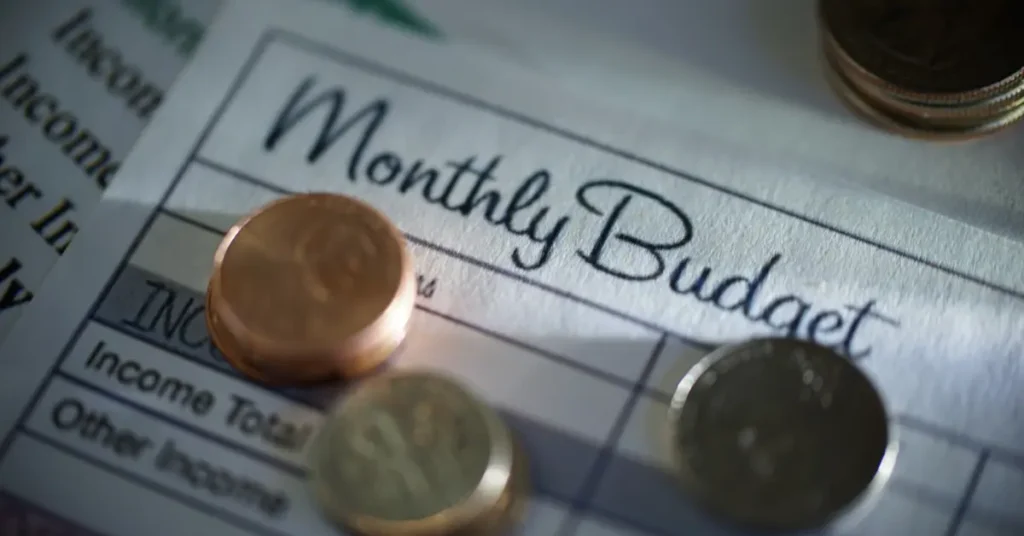Unlocking the secret of budgeting behavior is key to financial wellness, focusing not just on tracking expenses but understanding our relationship with money. It’s about finding balance in spending, saving, and achieving financial goals, ensuring a lifestyle that aligns with our values. This approach not only reduces financial stress but also enhances satisfaction with our financial decisions.
Exploring the Meaning Behind Budgeting Behavior
When I think about the term “budgeting behavior,” I’m focusing on the psychology behind our financial choices and the way we manage money.
What Is Budgeting Behavior?
Budgeting behavior involves our habits and attitudes toward managing finances. It’s about how we allocate our resources, set financial goals, and make choices that lead to either financial stability or difficulty. For instance, individuals displaying positive budgeting behavior typically track their expenses, prioritize savings, and plan their purchases with care.
Introducing Budget Precheck: A Key to Understanding
Before diving into budgeting, a “budget precheck” is an insightful step. It’s essentially a personal audit of one’s financial health, identifying current spending patterns, debt levels, and income. This precheck lays the groundwork for understanding behavioral tendencies and sets the stage for effective budget management.
The Psychology of Budgeting Behavior
When I think about budgeting behavior meaning, it strikes me as a deeply personal journey that’s much more psychological than it is merely mathematical. It’s intriguing to unravel the cognitive processes that influence how I handle my finances, as these are often shaped by deeper emotions and core values.
Exploring the Mindset Behind Financial Decisions
I’ve noticed that the way I manage my money isn’t just about the figures in my bank account. It’s closely tied to my stress levels and overall health. When I’m stressed, my decision-making skills might be compromised, impacting the choices between immediate wants and long-term needs. By understanding the root of these psychological pressures, I can create a more conscious and effective approach to my financial planning.
Linking Psychological Factors to Budget Management
An essential piece of the puzzle is education. Armed with knowledge about personal finance, I feel more empowered to manage my spending and saving behaviors. Recognizing how emotional responses to money, such as the temptation to indulge in wants, can derail my budget is crucial. By staying informed and exercising self-awareness, I can better align my budget to reflect a healthy balance between my wants and needs.
Budget Precheck as a Behavioral Tool

In understanding budgeting behavior meaning, I’ve found that a budget precheck is a proactive approach that can significantly influence financial planning. This process not only prepares us for upcoming expenses but also promotes a better savings strategy.
Incorporating Precheck into Financial Planning
When I incorporate a precheck into my financial planning, I’m taking a critical look at my expenditures before they occur. This means scrutinizing upcoming expenses and determining whether they align with my financial goals. Here’s a straightforward method to integrate a budget precheck into daily routines:
- Review: Weekly, review all expected expenses.
- Evaluate: Assess each cost for its necessity and value.
- Forecast: Predict monthly cash flow and adjust plans accordingly.
- Plan for Savings: Ensure a portion of income is allocated to savings after expenses.
These steps help embed a culture of financial mindfulness, making it easier to avoid unnecessary expenses and boost savings.
Behavioral Outcomes of Using Budget Precheck
Introducing a budget precheck has observable behavioral outcomes. By repeatedly examining my expenses, I nurture a keener financial knowledge and awareness. Here’s what happens behaviorally when I consistently use a budget precheck:
- Improved Spending Habits: I notice a tendency to think twice before making purchases.
- Increased Savings: With better control over spending, I see a rise in my savings rate.
- Enhanced Knowledge: Regularly engaging with my budget enhances my understanding of personal finance.
- Behavioral Tools Fostering Discipline: The precheck acts as a behavioral tool promoting financial discipline.
The effectiveness of a budget precheck lies in its ability to turn good intentions into habitual actions. It’s a personalized checkpoint that helps to safeguard against impulsive financial decisions and aligns daily habits with long-term financial well-being.
Changing Budgeting Behavior with Budget Precheck

Understanding the budgeting behavior meaning unlocks the potential for significant financial improvements. Adopting a Budget Precheck approach can lead to sustained and constructive changes in how we manage finances, encompassing debt, savings, and credit card usage.
Success Stories: Behavioral Change in Action
Budget Precheck has been instrumental in helping individuals rethink their approach to personal finance. For example, a recent initiative demonstrated how families with chronic overspending on credit cards reduced their monthly expenditure by 20% through the direct application of precheck principles. These families systematically reviewed upcoming expenses, aligning them with their income and savings goals, resulting in less reliance on debt and a healthier financial state.
Practical Steps for Integrating Budget Precheck
Implementing Budget Precheck in your personal finance routine involves several practical steps:
- Assess Current Spending: Begin by thoroughly analyzing your current spending habits. Itemize expenses and note areas where credit card usage could be potentially replaced with savings.
- Set Clear Goals: Clearly define short-term and long-term financial goals. Whether it’s paying off debt or increasing your savings rate, knowing your destination is crucial for a successful journey.
- Regularly Review Budgets: Make it a habit to periodically review your budget. This will ensure you remain on track with your financial objectives and make any necessary adjustments promptly.
By integrating these steps, Budget Precheck becomes a powerful tool not only for managing monthly bills but also for achieving broader financial wellness.
Measuring the Success of Adjusted Budgeting Behaviors

When we adjust our budgeting behavior, it’s crucial to measure how these changes impact our financial health. I find it both fascinating and essential to track progress and tweak our strategies for efficiency and growth.
Evaluating Financial Health Post-Implementation
After implementing a new budgeting plan, I always start by examining my updated financial health. Here’s how I do it:
- Monthly Income vs. Expenses: I lay out my income and expenses in a simple table to visualize any changes. A positive trend indicates success in adjusting my budgeting behavior.
| Month | Income | Expenses | Savings |
| Jan | $5,000 | $3,000 | $2,000 |
| Feb | $5,000 | $2,750 | $2,250 |
| Mar | $5,000 | … | … |
- Savings Rate: I also calculate my savings rate as a percentage of my monthly income. An increasing savings rate shows that I’m living within my means and planning for the future more effectively.
- Survey Outcomes: At times, I tap into surveys from similar demographics to compare my financial health indicators—this helps place my situation within a broader context.
Feedback and Continuous Improvement in Budgeting

The key to enhancing budgeting behavior lies in feedback. I gather insights from the following sources:
- Financial Software Reports: These tools offer detailed analytics on spending trends, category overruns, and savings goals, which inform my budgeting efficiency.
- Personal Reflection: Monthly, I reflect on what worked and what didn’t. Did I overspend in a particular category? Can I increase my savings next month?
- Community Forums: Engaging with others on budgeting forums helps me gain new perspectives on managing finances and adjusting behaviors for better results.
Continuous improvement stems from a loop of action, feedback, and refinement. By staying vigilant and responsive, I ensure that my budgeting plan stays aligned with my financial goals.
Frequently Asked Questions
What is budgeting Behavior?
Budgeting behavior involves how I plan and track my income and expenditures to meet my financial goals. It’s about the conscious decisions I make to control my finances, prioritize my spending, and adjust my habits to save more effectively.
What is the meaning of financial behavior?
Financial behavior is how I handle my financial resources. This includes my actions related to earning, spending, saving, investing, and managing debt. It also reflects the psychological factors that influence my financial choices and habits.
What are the theories of budgeting behavior?
Several theories attempt to explain budgeting behavior. One popular theory is the behavioral life-cycle hypothesis, which suggests that I budget not just for immediate needs but with foresight toward my lifetime financial resources. Another is the rational actor paradigm, which posits that my budgeting behavior is based on making rational decisions to maximize my financial utility.
What are the behavioral problems in budgeting?
Behavioral problems in budgeting can include a lack of self-control, which leads to overspending or being too optimistic about my future income, which can result in under-saving. Cognitive biases like the sunk cost fallacy can also impact my budgeting decisions, causing me to spend money based on past investments rather than current value.
What affects financial behavior?
Several factors influence my financial behavior, including psychological, cultural, and economic influences. For instance, my emotions can lead to impulsive spending, societal norms might pressure me into buying a home, and economic downturns could make me more cautious with my investments. My personal values and financial education also play significant roles in shaping my financial behavior.
I hope you found some inspiration or useful tips in our article on ’budgeting behavior’! If so, I’d love to hear your thoughts and ideas in the comments below! And if you’re looking for more insightful content, don’t hesitate to explore our other articles:
- How To Save $2000 In 2 Months: Your Starter Guide!
- Financial Planning Month: Strategies for Smart Money Management
- Financial Planning For Seniors – Guide To Managing Retirement Finances
Your comments help us create better content for you. Happy reading!






